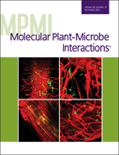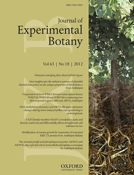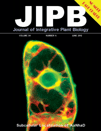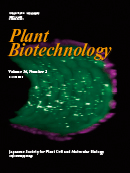
Horticulture Research
Scope & Guideline
Leading the way in horticultural research and discovery.
Introduction
Aims and Scopes
- Genomic and Transcriptomic Studies:
The journal publishes extensive research on genomic sequencing and transcriptomic analysis, providing insights into genetic diversity, trait association, and gene expression regulation in various horticultural crops. - Plant-Microbe Interactions:
Research on the interactions between plants and pathogens, including studies on disease resistance mechanisms and the effect of microbial communities on plant health and productivity. - Crop Improvement and Breeding:
Focus on innovative breeding techniques, including CRISPR technology and genome editing, aimed at enhancing desirable traits in horticultural crops such as fruit quality, yield, and stress tolerance. - Metabolomics and Secondary Metabolite Production:
Investigation of metabolic pathways and their regulation, particularly in relation to the production of secondary metabolites that contribute to flavor, aroma, and nutritional value in fruits and vegetables. - Environmental Stress Responses:
Research on how horticultural crops respond to abiotic stresses (e.g., drought, salinity, and temperature) and the underlying molecular mechanisms that confer resilience. - Sustainable Horticulture Practices:
Exploration of sustainable practices in horticulture, including the use of cover crops, intercropping, and organic farming methods to enhance soil health and crop productivity.
Trending and Emerging
- Omics Approaches Integration:
The integration of genomics, transcriptomics, and metabolomics is increasingly prevalent, allowing for a holistic understanding of plant biology and the development of innovative solutions for crop improvement. - CRISPR and Genome Editing Technologies:
Research utilizing CRISPR and other genome editing technologies is on the rise, focusing on precise modifications to enhance traits such as disease resistance, fruit quality, and stress tolerance. - Microbiome Research in Horticulture:
Studies exploring the role of plant-associated microbiomes in promoting plant health and resilience are gaining traction, emphasizing the importance of microbial interactions in sustainable agriculture. - Climate Resilience and Adaptation:
There is a growing emphasis on understanding how horticultural crops can adapt to climate change, with research focusing on the genetic and physiological bases of resilience to environmental stresses. - Bioinformatics and Data-Driven Research:
The application of bioinformatics in analyzing large-scale genomic and transcriptomic datasets is becoming increasingly important, enabling researchers to uncover complex biological interactions and inform breeding programs.
Declining or Waning
- Traditional Breeding Techniques:
There is a noticeable decline in research focused solely on traditional breeding methods, as newer technologies like genomic selection and CRISPR are increasingly favored for crop improvement. - Generalized Plant Physiology Studies:
Studies that do not integrate molecular approaches or focus broadly on plant physiology without specific applications or genetic insights are becoming less common. - Non-Genetic Approaches to Crop Management:
Research concentrating on non-genetic factors, such as agronomic practices without a molecular or genetic component, is waning as the field shifts towards more integrated and high-tech agricultural solutions. - Conventional Pest Management Strategies:
There is a decline in studies emphasizing traditional pest management techniques, as the focus shifts towards understanding plant resistance mechanisms at a molecular level and developing biotechnological solutions.
Similar Journals

CEREAL RESEARCH COMMUNICATIONS
Empowering researchers through multidisciplinary dialogue.Cereal Research Communications is a premier academic journal published by Springer Heidelberg, dedicated to advancing knowledge in the field of agri-food science with a particular focus on agronomy, crop science, genetics, and physiology. With a strong reputation reflected in its Q2 ranking in Agronomy and Crop Science, this journal serves as a vital resource for researchers, professionals, and students alike. Published in Hungary, the journal facilitates the dissemination of innovative research and practice, covering a broad spectrum from crop genetics to physiological processes, thereby fostering a multidisciplinary dialogue among scholars. The journal has maintained a consistent publication record since its inception in 1993 and will continue its commitment to academic excellence and relevance through 2024. Although it operates under a subscription model, its contributions are crucial for those engaged in improving crop productivity and sustainability. For those looking to connect with cutting-edge research and contribute to the food security dialogue, Cereal Research Communications remains an essential platform in the field.

PHYTON-INTERNATIONAL JOURNAL OF EXPERIMENTAL BOTANY
Fostering excellence in experimental botany since 1984.PHYTON-INTERNATIONAL JOURNAL OF EXPERIMENTAL BOTANY is a prominent journal dedicated to the advancement of knowledge in the fields of plant science, biochemistry, and physiology. Published by Tech Science Press in Argentina, this journal serves as a vital resource for researchers, professionals, and students alike. Since its inception in 1984, PHYTON has provided a platform for innovative research and experimental findings, emphasizing the importance of plant biology in understanding ecological and agricultural challenges. With its current quartile rankings indicating a solid impact in its categories—Q3 in Plant Science and Q4 in Biochemistry and Physiology—this journal is strategically positioned to contribute to significant discourse within the scientific community. Access options may vary, providing flexibility to its readership. With a commitment to excellence in research and scholarship, PHYTON remains an essential journal for anyone engaged in the study and exploration of plants and their biological processes.

Molecular Horticulture
Bridging Molecular Biology and Horticultural ExcellenceMolecular Horticulture is a prestigious journal published by SpringerNature, dedicated to advancing knowledge in the fields of Agronomy, Crop Science, Horticulture, and Molecular Biology. Based in the United Kingdom, this journal, with ISSN 2730-9401, is recognized for its high-quality, peer-reviewed research and has rapidly established itself within the academic community, achieving a remarkable Q1 ranking across its relevant categories as of 2023. With a strong focus on innovative research that explores the intersection of molecular biology and horticultural science, Molecular Horticulture provides valuable insights that are essential for researchers and professionals aiming to enhance crop production and sustainability practices. As part of the Scopus database, the journal ranks impressively within its fields, holding notable positions such as Rank #7 in Horticulture and Rank #42 in Agronomy and Crop Science. While currently published through traditional access models, the journal remains accessible to a wide audience of scientists, educators, and students eager to stay informed on the latest discoveries and trends in plant science.

MOLECULAR PLANT-MICROBE INTERACTIONS
Bridging Science and Sustainability in AgricultureMOLECULAR PLANT-MICROBE INTERACTIONS is a premier journal dedicated to the exploration of the complex interactions between plants and microbes, providing a vital platform for researchers in agronomy, crop science, and plant physiology. Published by the American Phytopathological Society, this journal has been serving the academic community since 1988 and continues to be at the forefront of advances in molecular biology and plant-microbe symbiosis, with a notable impact factor reflecting its esteemed position in the field. As a Q1 journal in both Agronomy and Crop Science and Medicine (miscellaneous), and holding a significant ranking in the Scopus categories, it is recognized for publishing high-quality, peer-reviewed research that is essential for understanding and improving agricultural practices. Although it is not an open-access journal, it provides critical insights that facilitate collaborative efforts among researchers, professionals, and students alike. The journal’s objectives focus on enhancing our understanding of plant health, disease resistance, and ecological sustainability, making it a crucial resource for anyone interested in the intricate research landscape of plant-microbe dynamics.

Zemdirbyste-Agriculture
Bridging research and practice in the heart of Lithuania.Zemdirbyste-Agriculture is a prominent journal dedicated to advancing the field of agricultural sciences, with a particular focus on agronomy and crop science. Published by the Lithuanian Research Centre Agriculture & Forestry, this open access journal has been fostering knowledge sharing and scientific discourse since 2004, allowing researchers, professionals, and students unrestricted access to its content. Located in the beautiful country of Lithuania, specifically at Vytautas Magnus University, this journal plays a significant role in disseminating innovative research findings. With a 2023 Scopus ranking of #246 out of 406 in the category of Agricultural and Biological Sciences, Zemdirbyste-Agriculture falls within the Q3 quartile, reflecting its growing influence in the academic community. This journal, which has converged its publication focus from 2008 to 2023, aims to provide a platform for scientists to share their critical insights on agricultural practices, sustainability, and technological advancements in crop science, thereby contributing to the global discourse on food security and environmental health.

Rice
Empowering agricultural innovation through open access research.Rice, an esteemed journal published by Springer, is at the forefront of scientific research in the fields of Agronomy, Plant Science, and Soil Science. With its ISSN 1939-8425 and E-ISSN 1939-8433, the journal offers open access since 2012, ensuring that vital research findings are widely accessible to researchers, professionals, and students globally. Based in the United States, the journal has established itself as a pivotal resource, reflected in its impressive rankings—Q1 across multiple categories in 2023, including Agronomy, Plant Science, and Soil Science. With Scopus rankings positioning it in the top tiers of agricultural and biological sciences, Rice continues to foster innovative dialogue and advances in agricultural research. The journal's objectives focus on disseminating high-quality research that contributes significantly to the understanding and sustainable management of rice production, supporting global food security and agricultural practices. Researchers in this domain will find Rice to be an invaluable resource for cutting-edge findings and collaborative opportunities.

Journal of Soil Science and Plant Nutrition
Advancing sustainable agriculture through soil and plant science.The Journal of Soil Science and Plant Nutrition, published by SPRINGER INT PUBL AG, is a premier academic journal dedicated to advancing the fields of agronomy, plant science, and soil science. With an impressive Q1 ranking in both Agronomy and Crop Science and Plant Science, alongside a Q2 ranking in Soil Science, this journal stands at the forefront of innovative research and knowledge dissemination. Annually indexed in key databases, it provides a platform for high-quality research articles that explore the complex interactions between soil health and plant nutrition, contributing significantly to sustainable agricultural practices. Although it does not offer open access options, the journal is accessible through various academic institutions and libraries, ensuring a wide readership. With its emphasis on impactful findings, the journal is an essential resource for researchers, professionals, and students aiming to further their understanding and application of soil and plant science in an ever-evolving global context.

JOURNAL OF EXPERIMENTAL BOTANY
Pioneering research in plant physiology.JOURNAL OF EXPERIMENTAL BOTANY, published by Oxford University Press, stands as a premier journal for researchers and professionals in the fields of plant science and physiology. With an illustrious history dating back to 1950, this journal has established itself as a critical resource for advancing our understanding of plant biology and its applications. It is recognized in the top tier of academic publishing, reflected in its Q1 rankings in both Plant Science and Physiology for 2023, and boasts impressive Scopus rankings—placing it in the 96th and 91st percentiles of its respective categories. Though not an open-access journal, it ensures widespread access to groundbreaking research aimed at unraveling the complexities of plant functions and adaptations. As we look toward 2024, the JOURNAL OF EXPERIMENTAL BOTANY continues to play an essential role in fostering innovation, collaboration, and education within this vital area of science.

Journal of Integrative Plant Biology
Advancing the Frontiers of Plant ScienceThe Journal of Integrative Plant Biology, published by WILEY, is a premier academic journal that has been at the forefront of advancing research in plant biology since its inception in 2005. With a notable impact factor and a robust Scopus ranking—positioned at #7 out of 516 in Plant Science and #18 out of 438 in Biochemistry—this journal is recognized as a Q1 journal in multiple categories, including Biochemistry and Plant Science. The journal aims to bridge the gaps between various disciplines in plant research, emphasizing integrative and interdisciplinary approaches to understanding plant biology. With options for open access, the Journal of Integrative Plant Biology ensures broad visibility and impact of research findings, making it an invaluable resource for researchers, professionals, and students looking to stay informed on innovative advancements in the field. Its headquarters are located in the United Kingdom, further amplifying its reach within the global academic community.

Plant Biotechnology
Advancing the Frontiers of Plant Science.Plant Biotechnology is a distinguished journal published by the Japanese Society for Plant Cell and Molecular Biology, committed to advancing the field of plant biotechnology through the dissemination of high-quality research. With an ISSN of 1342-4580, this journal caters to a global audience interested in agronomy, crop science, and plant molecular biology. The journal has achieved notable rankings, including Q2 in Agronomy and Crop Science and Q2 in Plant Science, underscoring its relevance and impact in these fields according to the latest 2023 metrics. Furthermore, it holds a respectable position within Scopus rankings across multiple categories, indicating its contribution to the academic community. Although it is not an open-access journal, its regular publications, spanning from 1997 to 2024, feature cutting-edge studies that explore innovative approaches and technologies in plant science. Researchers, professionals, and students will find Plant Biotechnology an essential resource for staying informed on significant advancements and trends in plant research.